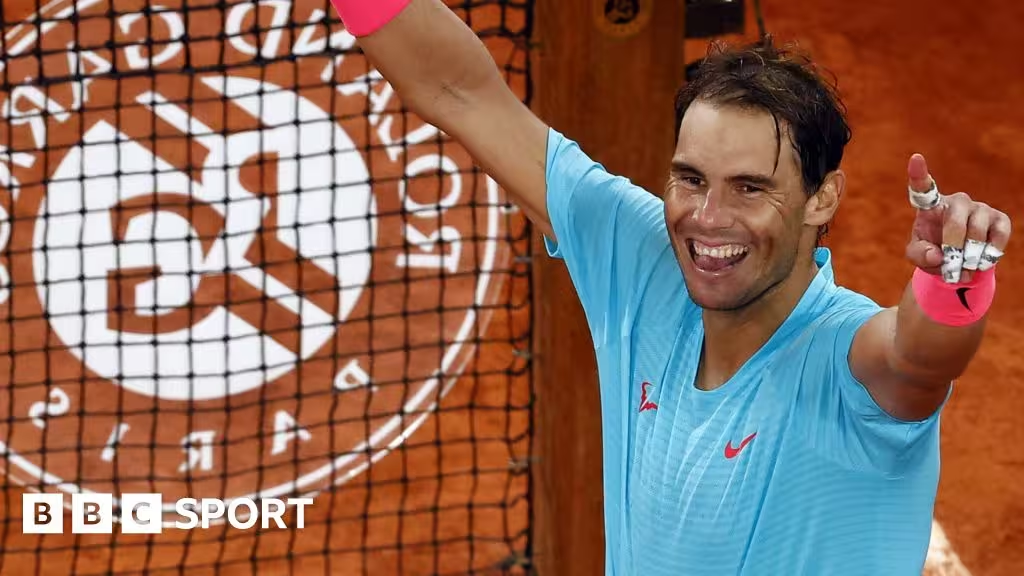The clay surface slows the ball down more than grass, enabling Nadal to use his athleticism to construct his points and tee up that famed forehand.
In turn, it helps him hit the ball harder and more accurately, while the hotter summer temperatures in mainland Europe – where the majority of the clay-court season takes place – help Nadal generate more bounce.
It is notable that Nadal’s successes in Monte Carlo and Rome, two of the Tour’s three clay-court Masters tournaments, outnumber those in Madrid – the third – as the high altitude of the Spanish capital means the ball has less top spin and bounces lower.
“The conditions at Roland Garros suit him perfectly,” said Austria’s Dominic Thiem after he lost to Nadal in the 2018 final. “It’s similar to Monte Carlo, where he also plays amazing.
“Also the court at Roland Garros is very big. We can return very far behind the baseline. That’s an advantage to him.”
In 2020, the conditions were far from Nadal’s liking.
Going into the tournament, Nadal said the colder conditions in an autumnal Paris and a heavier new ball provided him with the “toughest test” he had ever faced at Roland Garros.
Even Djokovic hinted before the match he felt the conditions gave him a “better chance” because Nadal could not get the ball as high.
Yet the Spaniard still won the title without dropping a set.
Two-time French Open champion Jim Courier said he thought the conditions might have actually helped Nadal, particularly in the final against top seed Djokovic.
Nadal played with controlled aggression of the highest level, hitting 31 winners and making just 14 unforced errors.
“Maybe we were thinking about it the wrong way and maybe Rafa was too,” said Courier in his position as television analyst for ITV.
“Maybe the slower conditions helped him. Rafa was able to get to the ball and land the blow with so little risk because he has so much spin on the ball.
“The fact he had almost the same amount of winners as Novak did, who was playing so much more risky tennis, and less than a third of the unforced errors was mind-blowing.”
Click Here to Read the Full Original Article at BBC Sport…

